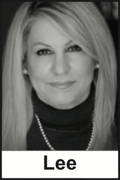Rascals case in brief
In the beginning, in 1989, more than 90 children at the Little Rascals Day Care Center in Edenton, North Carolina, accused a total of 20 adults with 429 instances of sexual abuse over a three-year period. It may have all begun with one parent’s complaint about punishment given her child.
Among the alleged perpetrators: the sheriff and mayor. But prosecutors would charge only Robin Byrum, Darlene Harris, Elizabeth “Betsy” Kelly, Robert “Bob” Kelly, Willard Scott Privott, Shelley Stone and Dawn Wilson – the Edenton 7.
Along with sodomy and beatings, allegations included a baby killed with a handgun, a child being hung upside down from a tree and being set on fire and countless other fantastic incidents involving spaceships, hot air balloons, pirate ships and trained sharks.
By the time prosecutors dropped the last charges in 1997, Little Rascals had become North Carolina’s longest and most costly criminal trial. Prosecutors kept defendants jailed in hopes at least one would turn against their supposed co-conspirators. Remarkably, none did. Another shameful record: Five defendants had to wait longer to face their accusers in court than anyone else in North Carolina history.
Between 1991 and 1997, Ofra Bikel produced three extraordinary episodes on the Little Rascals case for the PBS series “Frontline.” Although “Innocence Lost” did not deter prosecutors, it exposed their tactics and fostered nationwide skepticism and dismay.
With each passing year, the absurdity of the Little Rascals charges has become more obvious. But no admission of error has ever come from prosecutors, police, interviewers or parents. This site is devoted to the issues raised by this case.
On Facebook
Click for earlier Facebook posts archived on this site
Click to go to
Today’s random selection from the Little Rascals Day Care archives….
Click for earlier Facebook posts archived on this site
Click to go to
Today’s random selection from the Little Rascals Day Care archives….
Prosecutors grudgingly loosen grip on Bob Kelly
May 22, 2012
Fifteen years ago today: Claiming they want to spare their child-witnesses from another round of testimony, prosecutors drop the last Little Rascals charges against remaining defendants Bob Kelly and Dawn Wilson.
Nancy Lamb is referring to the children when she says, “They know who I am and why I walked into their lives and stayed awhile. They remember.” Of course she also “stayed awhile,” as an uninvited guest from hell, in the lives of the Edenton Seven.
Kelly remains on the hook for an unrelated sexual abuse charge filed more than a year earlier.
Finally, on Sept. 23, 1999, that charge too will be dropped, and for the first time in a decade he isn’t living under the thumb of prosecutors.
Child sex trafficking: 21st century’s moral panic?
 Aug. 21, 2013
Aug. 21, 2013
“Some advocates have suggested secure facilities for America’s child sex trafficking victims…. Such facilities force troubled children into a system of care that may be just as exploitive as with a pimp/trafficker.
“Countless women continue to seek restitution for the sexual abuse by employees assigned to supervise them while in detention in the ’60s and ’70s – some of these women have children fathered by detention employees….
“So then why do we talk about secure facilities for child victims of sex trafficking? Because ‘sex is at issue’ in their victimization….
“Child sex trafficking is not the first social issue to create moral panic around physical and sexual abuse. In the ’80s, Satanic Ritual Abuse garnered self-proclaimed experts, national media attention, law enforcement mobilizations, federal funding, excitement and hysteria. By the ’90s official investigations produced no evidence of widespread conspiracies and only a small number of crimes were verified….”
– From “Residential Programs for America’s Child Sex Trafficking Victims: Secure or Non-Secure Facilities?” by Dr. Lois Lee, founder and president, Children of the Night, at Huffington Post (July 9, 2013)
Why would prosecutors let ‘monster’ walk?
Jan. 18, 2012
“One way or another, justice has failed miserably in the agonizing case of the Little Rascals Day Care…. Last week, eight years after launching an investigation into possible sex abuse at the center, prosecutors announced they were dropping all charges against those who worked at the center.
“That means one of two things:
“(1) Either the defendants originally charged with hundreds of allegations of sex abuse in the 1980s are going to go virtually unpunished for their unspeakable deeds; or
“(2) Those same defendants have been badly treated by an overzealous prosecution team that broke all the rules of fairness in winning flawed guilty verdicts….”
– Editorial in The Charlotte Observer, May 29, 1997
So was that “overzealous prosecution team” simply blindered true believers, or did they realize early on their case was rotten to the core?
Defendant Scott Privott, who pled no contest and was released on probation after spending more than three years in prison, cuts through to the truth when he asks:
“Why did they offer me a plea? You know, if I’m supposed to be the monster that they said I was, if I did these crimes that they said I did, why would they offer me a plea?”
Why indeed, H.P. Williams?… Nancy Lamb?… Bill Hart?
Why prosecutors can’t admit they’re wrong
 March 5, 2012
March 5, 2012
“DURHAM — Tracey Cline could not admit she was wrong….”
Thus begins J. Andrew Curliss’s latest behavioral analysis of Durham County’s latest disgraced district attorney.
Coincidentally, Curliss cites a book I’ve been reading to better understand the rigidly wrongheaded behavior of the Little Rascals prosecutors.
“Carol Tavris, a Los Angeles social psychologist who has researched and written about the behavior and decision-making of prosecutors, said studies show the human brain, when sorting out conflicting beliefs and actions, will engage in a powerful act known as ‘self-justification.’
“It can keep people from admitting they are wrong and can be more powerful and more dangerous than an explicit lie, she said in an interview and in a 2007 book she co-authored, ‘Mistakes Were Made (But Not By Me)’…
“Self-justification is especially concerning in the justice system, Tavris said, because authorities often view themselves as ‘good guys’ doing the ‘right thing’….
“ ‘It’s really, really, really hard to face the reality that you screwed up,’ she said. ‘When we have a view of ourselves as good, competent, ethical, honest people and we are now confronted with evidence that we did something that was incompetent, unethical, immoral or harmful, we have two choices. We can ’fess up – say, “Oh, my God, look at this evidence, what did I do? How can I make amends?” – or, we deny.’ ”
Here’s a recent public ’fessing up that could be a model for errant prosecutors: “I want to express my sincere regret and apology…. It was a terrible mistake, and we knew it was wrong while we were doing it. Instead of getting caught up in it, I should have stopped it.”
Alas, it comes not from Cline – or from H. P. Williams Jr., Bill Hart or Nancy Lamb – but from the NFL coach who oversaw the “bounty” system for disabling opposing players.











0 CommentsComment on Facebook